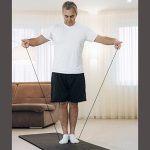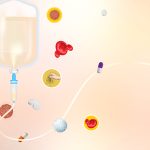-
Lifestyle Choices and Cancer
What people eat and drink and their level of physical activity can affect their risk of having cancer. New interventions aim to reduce risk factors.
by Kevin McLaughlin
-
Healthy Habits
Fit for Treatment‘Prehab’ programs can help people with cancer improve their health before treatment.
by Erin O'Donnell
-
Healthy Habits
Stress ReliefInterventions to manage stress can have long-lasting emotional and physical benefits for people with cancer.
by Carisa Brewster
-
Sound Advice
How should I describe my cancer pain to my doctor?Track the intensity, impact and frequency of your pain to best manage your discomfort.
-
Sound Advice
How can I address scars from cancer surgery?Taking precautions can minimize the appearance of scars, while various treatments can change how they look.
-
Sound Advice
How can I regain Medicaid coverage?Medicaid 'unwinding' has led to millions losing benefits. Take these steps to ensure you have coverage.
-
Your Cancer Guide
Tending Your GardenRemove those things that will hamper your growth during cancer treatment.
by Hester Hill Schnipper
-
Caregiving With Confidence
An Extra Set of Eyes and EarsCaregivers’ unique perspectives can enrich conversations with doctors, but it’s not always easy to decide when to speak up.
by K.J. Bannan
-
A Gentler Treatment Course
Patients who speak up when they don’t feel well can help doctors manage side effects caused by chemotherapy.
by Marci A. Landsmann
-
Climate Change and Cancer Care
Cancer centers and their patients face disruptions caused by hurricanes, wildfires and other extreme weather events.
by Cameron Walker
Cancer Talk
Treatment Combination Improves Survival in EGFR-positive Lung Cancer
Adding chemotherapy to targeted therapy improves outcomes for people with advanced EGFR-positive non-small cell lung cancer.
by Sandra Gordon
Lessons From 20 Years Living With CancerMultiple myeloma survivor Jonathan Gluck reflects on uncertainty, and the scientific progress that has kept him living with cancer for more than two decades.
by Eric Fitzsimmons
The Enduring Importance of Cancer Disparities ResearchOpening session from AACR conference highlights how perseverance and adversity have informed cancer disparities research over the years.
by Eric Fitzsimmons
Most Cancer Survivors Don’t Meet Healthy Diet GoalsDespite research linking fruits and vegetables to cancer survival, many people do not change their eating habits after diagnosis.
by Darlene Dobkowski















